Revisioning and EnGendering Security
The series Revisioning and EnGendering Security: Gender and Non Traditional Aspects of Security in South Asia, contributes to a corpus of knowledge both empirical and theoretical focused around the manner in which gender and “non-traditional” security concerns intersect in South Asia. It seeks to integrate gender analysis into the evolving discourse on non-traditional security, and also aims to provide points of entry to engage with issues in a manner in which gender concerns begin to be reflected in peace initiatives and processes of post-conflict reconstruction and rehabilitation.
TITLES IN THE SERIES
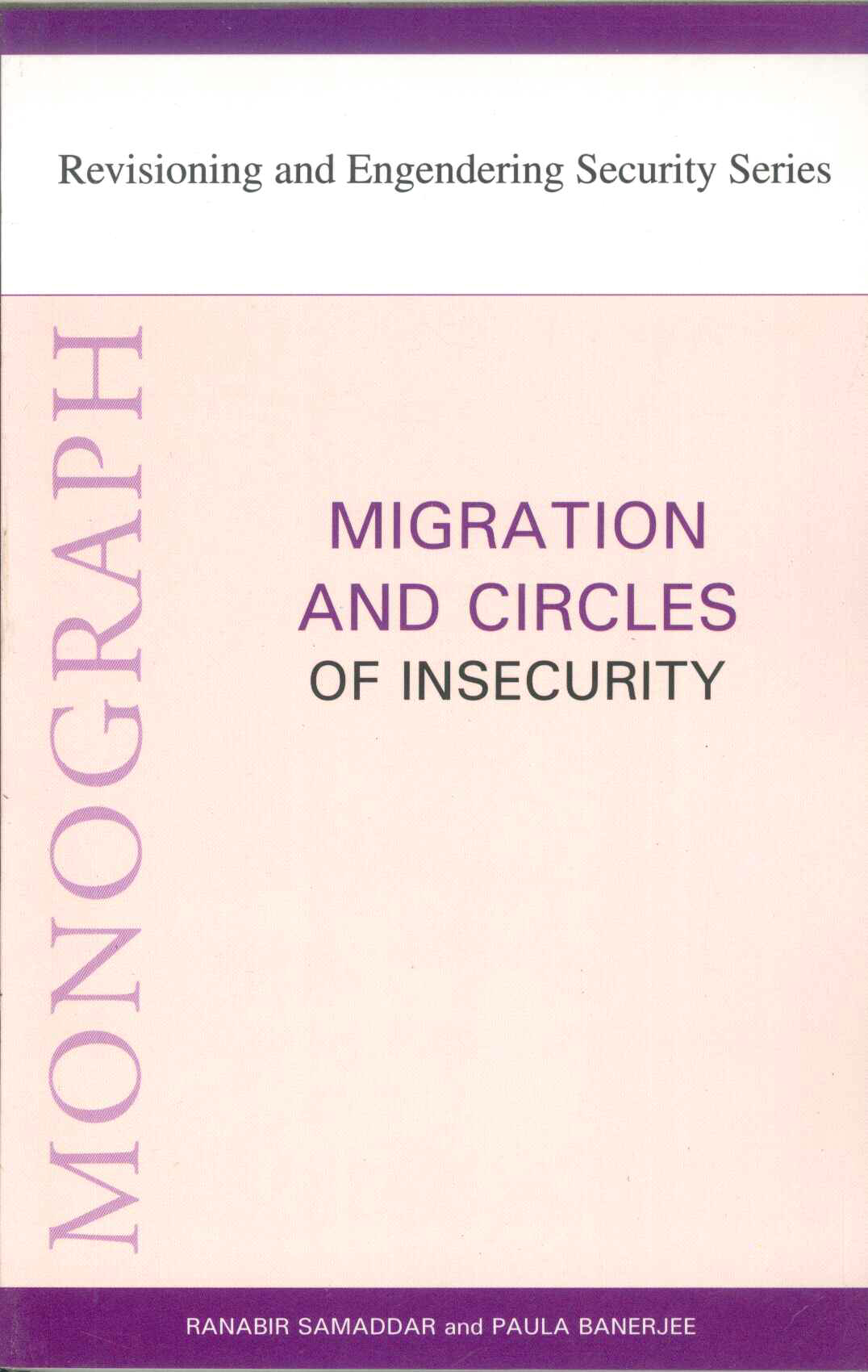
Migration and Circles of Insecurity
by Paula Banerjee and Ranabir Samaddar addresses the issue of population flows across and within borders and boundaries in India’s North East, Bangladesh and Myanmar and Nepal and how the security of displaced populations raises fundamental questions about constructions of National sovereignty and territoriality.
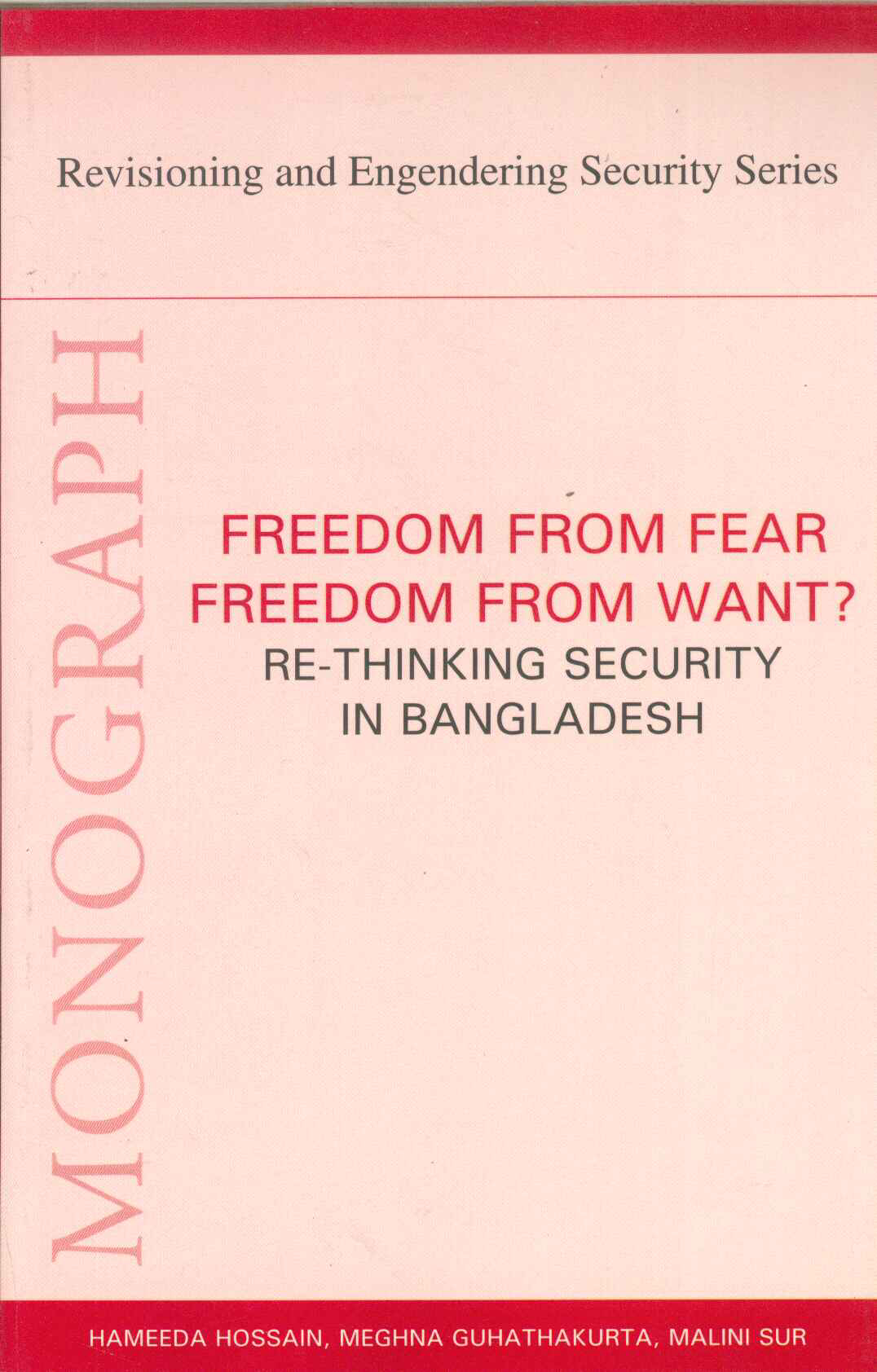
Freedom from Fear, freedom from Want? Rethinking Security in Bangladesh
by Hameeda Hossain, Meghna Guhathakurta and Malini Sur is an expose on how state formation and political governance can breed fear, violence and insecurities by privileging gendered experiences. The state and the globalizing markets are etched here as continuing sources of insecurity for women, in particular from among religious minorities, especially in Bangladesh. The study is located within the spectrum of freedom from want and freedom from fear and is premised on the fact of everyday violence, manifest violence and structural violence that intersect to generate insecurity.
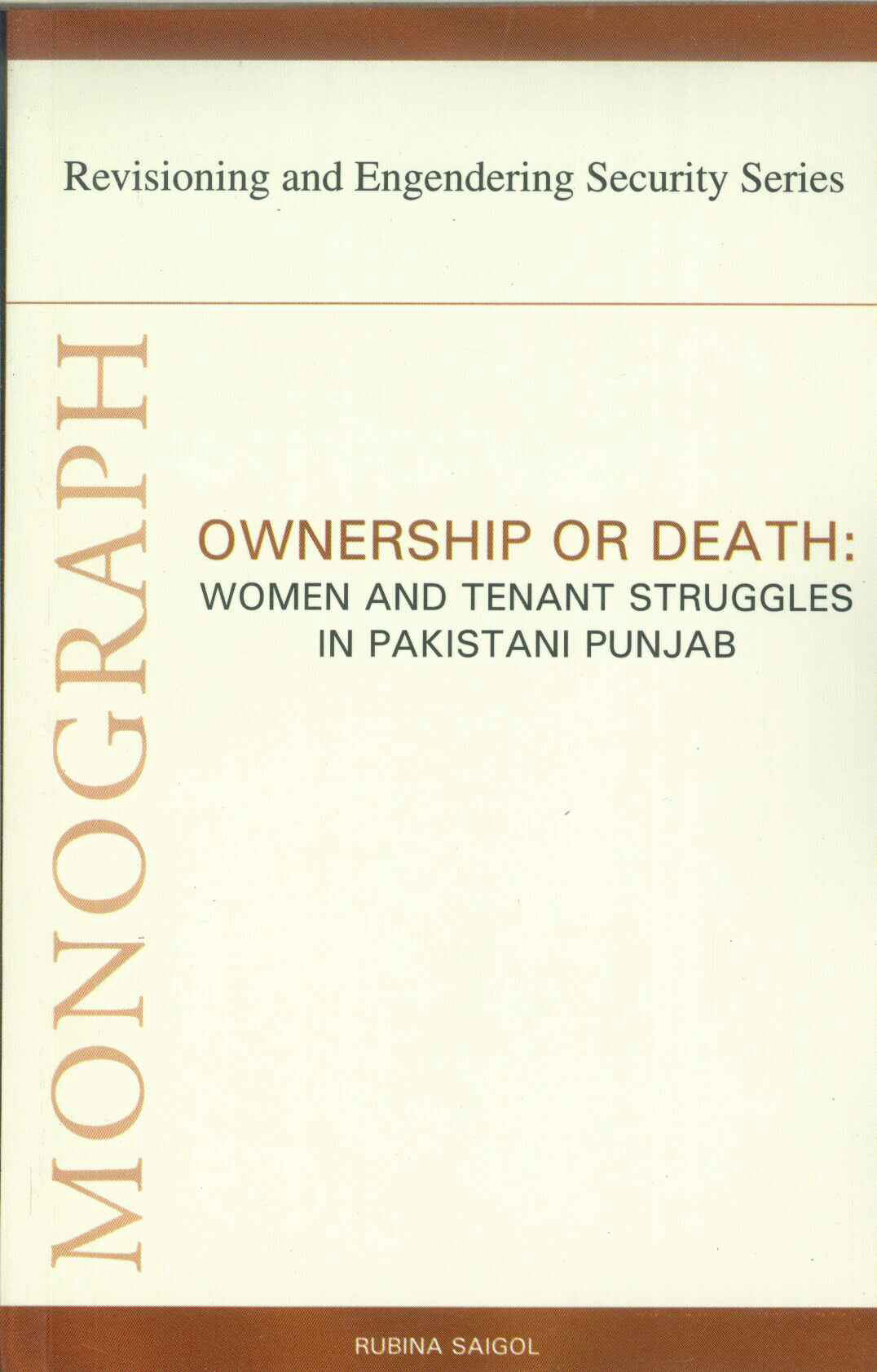
Ownership or Death: Women and Tenant Struggles in Pakistani Punjab
by Rubina Saigol engages with questions of food and water security and land rights with reference to Pakistan. Women’s activism in a farmer’s movement in Pakistan Punjab is explored where the ubiquity of the military – economic elite and indeed the force of the state is a continuing source of violence and insecurity.
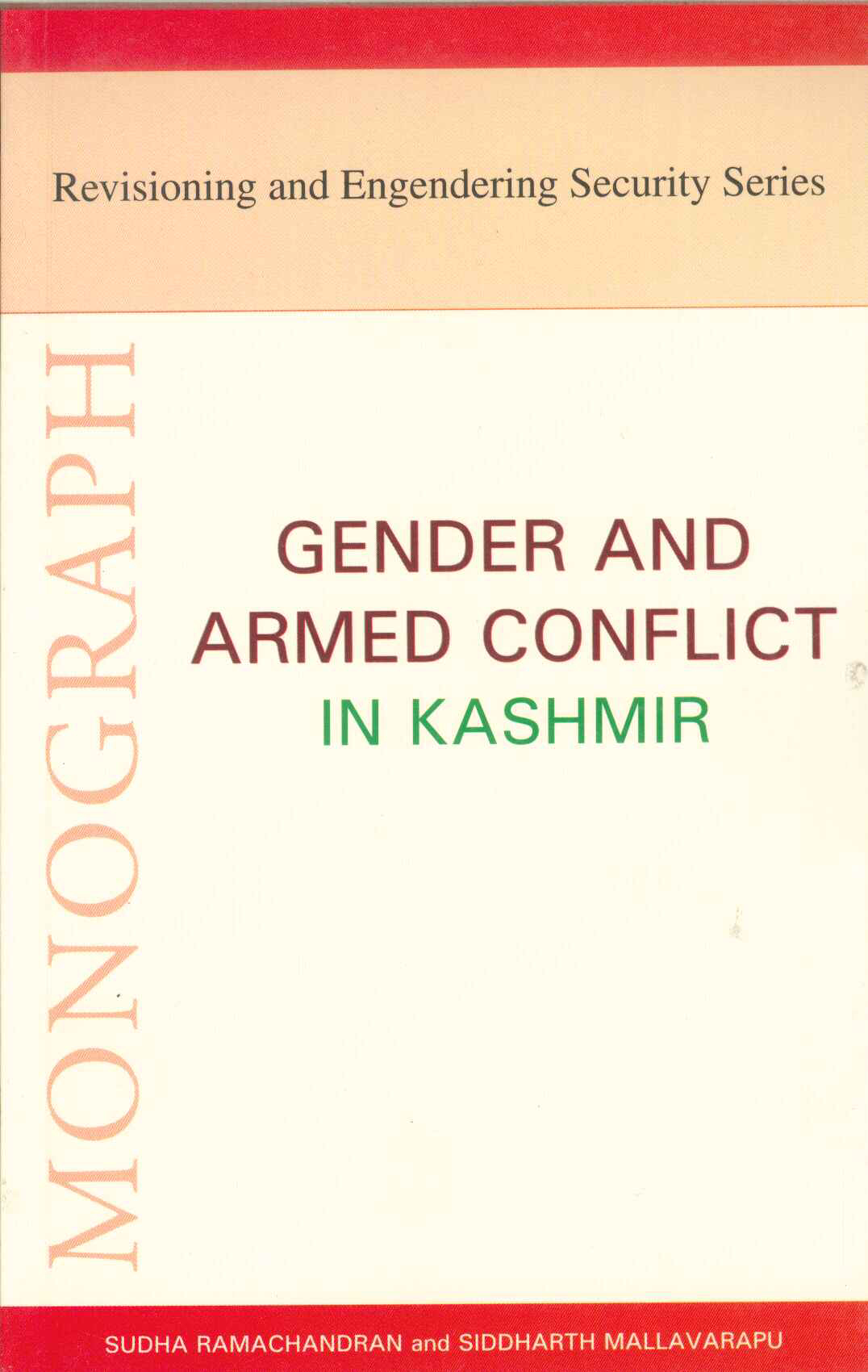
Gender & Armed Conflict in Kashmir
by Sudha Ramachandran and Siddharth Mallavarapu opens up a dialogic space between constructivist and feminist approaches to security. The focus is on the seemingly ‘antagonistic’ approaches in the national and human security paradigms. It also focuses on the tensions between them as played out in situations of conflict, how agency is both perceived and developed in a situation of conflict and how it is mediated by gender.
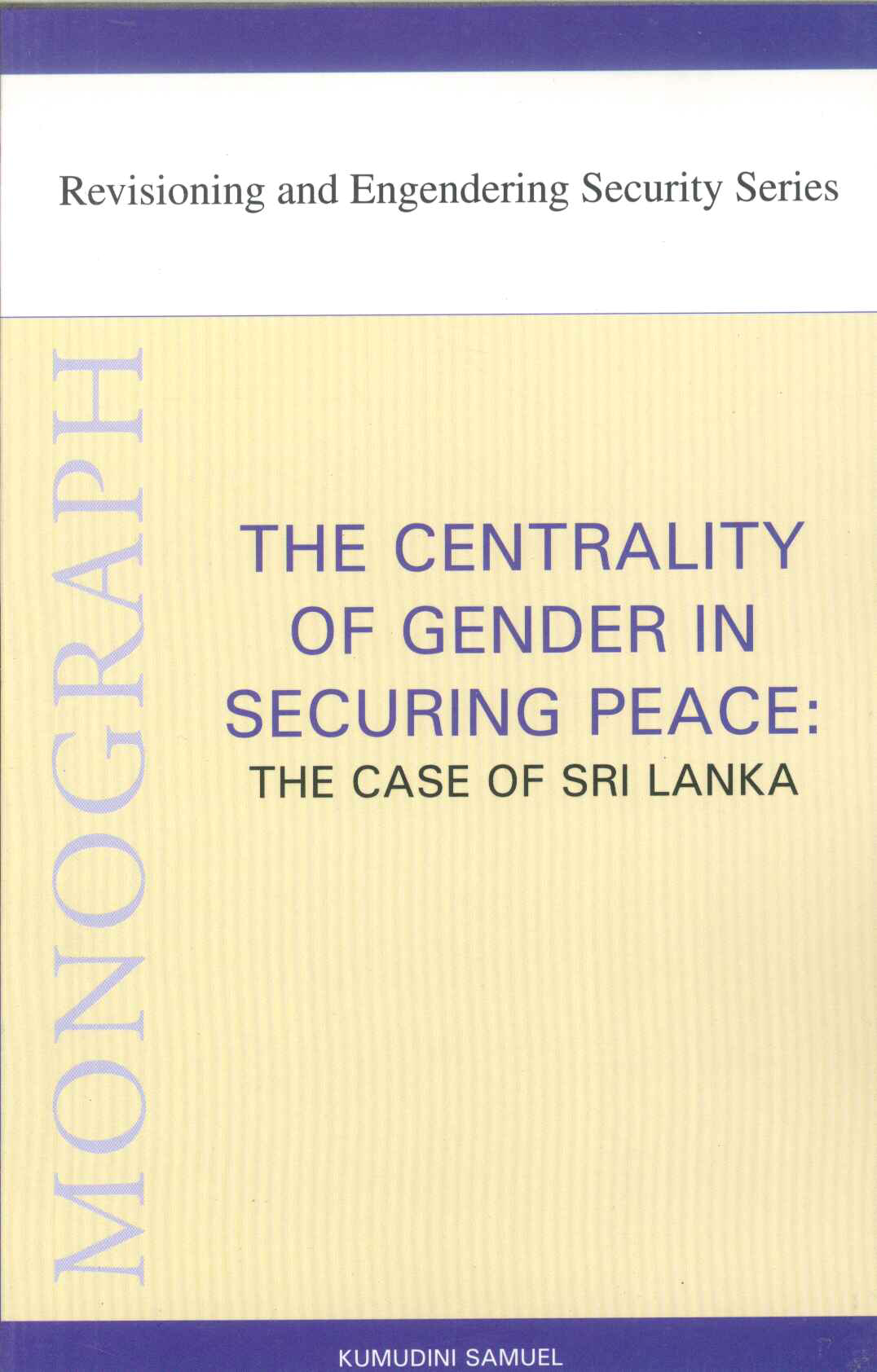
The Centrality of Gender in Securing Peace: The Case of Sri Lanka
by Kumudini Samuel highlights the challenges of ‘mainstreaming’ women’s concerns at the Peace Table, made more acute by their under representation in legislatures and formal structures of decision making.
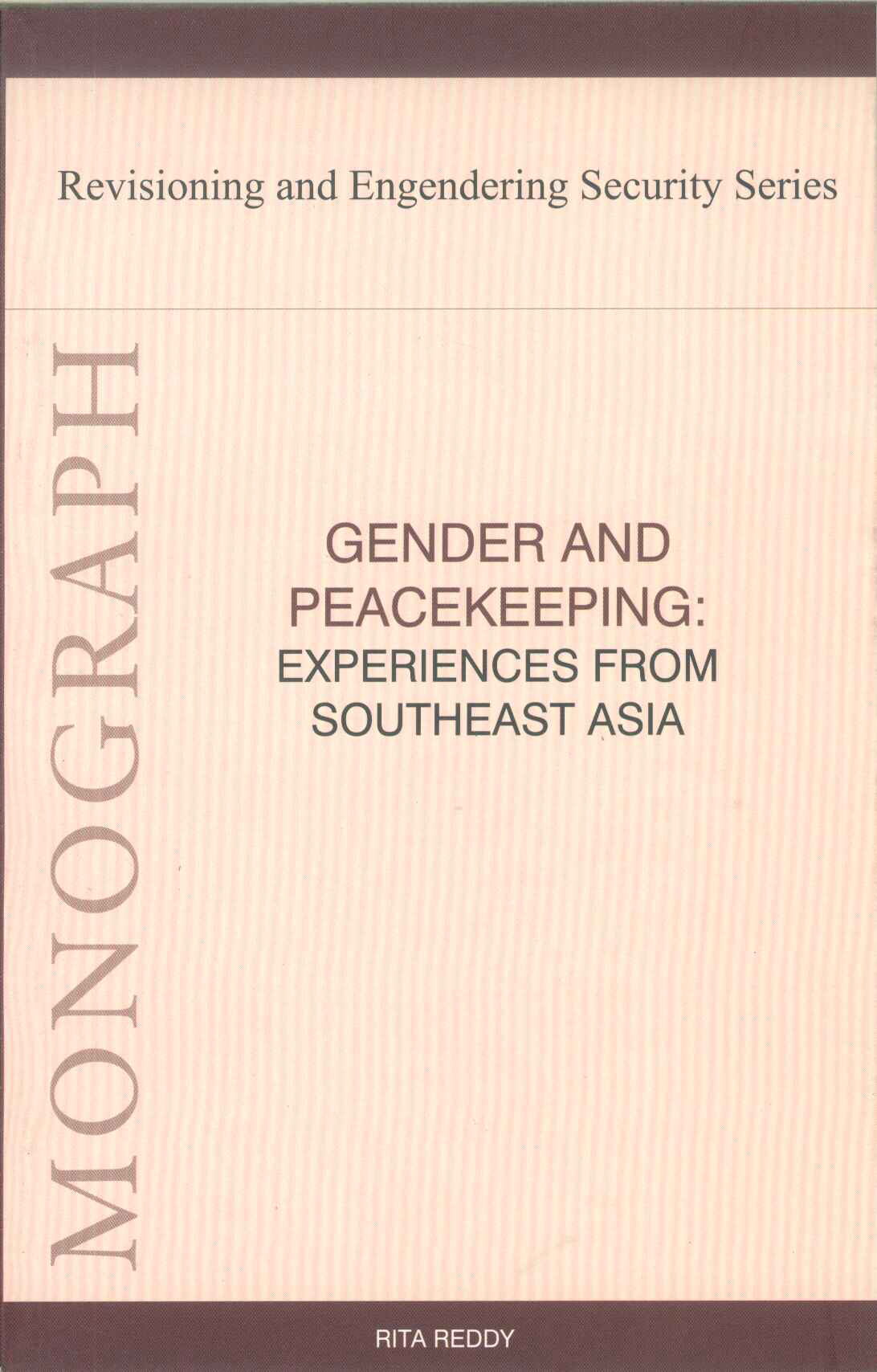
Gender and Peacekeeping: The Experiences of SouthEast Asia
by Rita Reddy focuses on East Timor and Cambodia to examine the spaces offered by interim structures and institutions set up under the peacekeeping dispensation of the UN to facilitate the participation of women in post conflict reconstruction and peacebuilding processes as mandated by the landmark Security Council Resolution 1325. It documents the experiences of Cambodia’s UNTAC and East Timor’s UNTAET, the two UN Missions that provide the lens through which the efficacy of 1325 could be assessed and their possible replication in South Asia explored.
